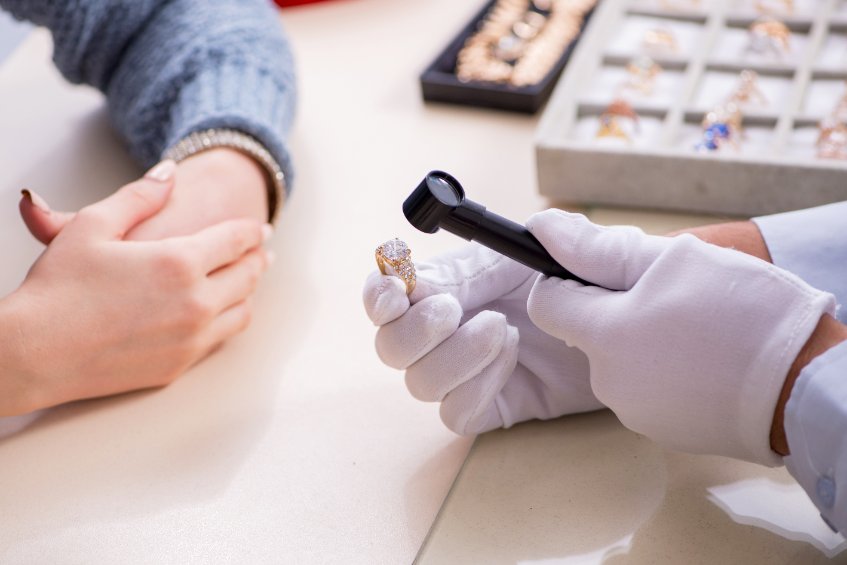
When it comes to pawn shops, there are many misconceptions. The biggest one is that only people who are in desperate need of money go to them. This could not be further from the truth! In fact, pawn shops can be a great resource for anyone looking to make some extra cash. They are also a great place to go if you need to sell something quickly. So, how old do you have to be to pawn something? Keep reading to find out!
1. What is pawning and how does it work?
Pawning is when you take an item of value to a pawn shop and use it as collateral for a loan. The loan amount will be based on the value of your item. Once you have paid back the loan, plus interest, you will get your item back. It’s important to note that if you do not pay back the loan, the pawn shop will keep your item and sell it to recoup their losses.
This is a great option if you need money quickly and do not want to sell your item outright. It’s also a good way to get a loan without having to go through a bank or other traditional lender.
2. How old do you have to be to pawn something in your state/province/country of residence?
In the United States, you have to be 18 years old to pawn something. This is because pawn shops are considered financial institutions. As such, they are regulated by federal and state laws. In Canada, the age requirement varies from province to province. For example, in Alberta, you have to be 16 years old while in British Columbia you have to be 19 years old.
It’s important to check the age requirement in your area before pawning something. This is because you will not be able to get your item back if you can’t pay off the loan.
3. Are there any restrictions on what can be pawned or how often you can pawn an item(s)?
There are no federal restrictions on what can be pawned. However, some states have their own laws on the matter. For example, in Florida, you cannot pawn jewelry that is worth more than $500. In California, there is a limit of $2500 on all loans from a pawn shop.
;
As for how often you can pawn something, there are no restrictions. However, keep in mind that if you default on a loan, the pawn shop will keep your item. They may also report you to the credit bureau, which could negatively impact your credit score.
4. What are the benefits of pawning an item(s)?
There are several benefits of pawning an item. First, it’s a quick and easy way to get money. You can typically get your loan within a few hours. Second, it’s a great option if you need money but don’t want to sell your item. This is because you can get your item back once you have paid off the loan. Finally, pawning is a great way to get a loan without having to go through a bank or other traditional lenders.
Keep in mind that the interest rates on pawn shop loans are typically higher than other types of loans. However, this is still an option worth considering if you need money quickly and don’t have many other options.
5. What are the risks associated with pawning an item(s)?
There are a few risks associated with pawning an item. First, if you can’t pay back the loan, the pawn shop will keep your item and sell it to recoup their losses. Second, you may be charged high-interest rates on the loan. Finally, if you default on the loan, the pawn shop may report you to the credit bureau, which could negatively impact your credit score.
Before pawning something, make sure you are aware of the risks and are comfortable with them. This is a great option for anyone in need of quick cash but it’s important to understand the risks involved.
6. How much money can you get for a particular item that’s been pawned?
How much money you can get for an item will depend on the value of the item and the pawn shop’s policies. Typically, you can expect to receive 25-60% of the item’s resale value. For example, if you pawn a diamond ring that’s worth $1,000, you could receive $250-$600 for it.
Keep in mind that the amount of money you get for an item will also depend on how long you take to pay back the loan. If you pay off the loan quickly, you may receive a higher payout than if you take your time paying it back. So be sure to consider this when deciding whether or not to pawn something.
At the end of the day, pawning can be a great option for anyone who needs fast cash but doesn’t want to lose their items. Just make sure you are aware of all the risks and have a plan in place for paying off your loan. With some careful planning and research, you can get the money you need without sacrificing your valuables.
Have you ever had to pawn something? How old were you? We’d love to hear about it in the comments below.
Read More:
5 Things to Remember When Building A Wealth Snowball
4 Important Questions to Ask Your Student Loan Servicer
10 Thrift Store Finds That You Can Take to the Bank
Tamila McDonald has worked as a Financial Advisor for the military for past 13 years. She has taught Personal Financial classes on every subject from credit, to life insurance, as well as all other aspects of financial management. Mrs. McDonald is an AFCPE Accredited Financial Counselor and has helped her clients to meet their short-term and long-term financial goals.